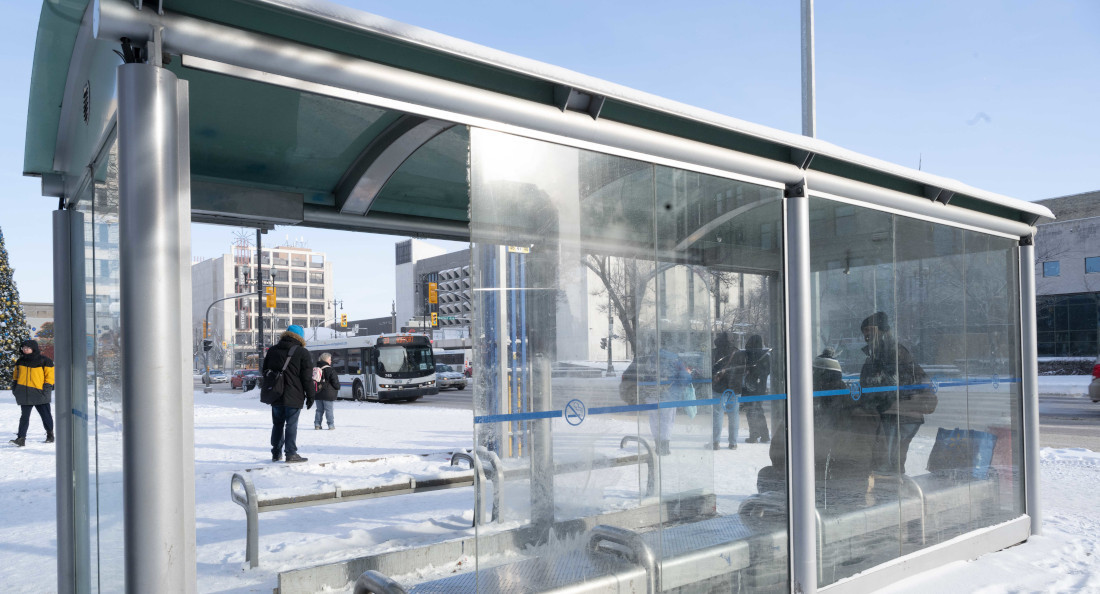Transit fare increase impacts students
‘I don’t think that it should cost that much to get to school’
University of Winnipeg (U of W) students have mixed feelings about the new cost of riding the bus to school after Winnipeg Transit increased their fares on Jan. 1.
Single-semester Peggo e-passes for post-secondary students now cost $303.70, compared to $293.20 in 2023.
Transit fares rise annually because of inflation and increased by 3.8 per cent for 2024, Megan Benedictson, a communication officer for Winnipeg Transit, says in an email statement. Full-fare rides now cost $3.25 cash (up from $3.15).
Full-time U of W students automatically purchase a U-Pass through the University of Winnipeg Students’ Association as part of their term fees. These discounted passes currently cost $225.60 per term or $431.20 for the September 2023 to April 2024 school year.
Students can opt out of the U-Pass for the winter term by filling out a form on the UWSA website by Jan. 19, 2024.
Part-time students have access to seven-day, 28-day and monthly discounted passes. Lower-income Winnipeg residents can apply for the WINNpass program, which provides transit passes at a 50 per cent discount.
Nathan Douglas, a fourth-year applied computer science student, relies on public transportation to commute to school and work.
Douglas is 21 and says he spends at least $500 on transit each school year, because he can’t afford a car. He also pays about $60 per month for a bus pass during the summer.
“I wouldn’t necessarily say I love it, but I get why (fares) have to go up,” he says. “At least there’s less upfront prices (compared to owning a car), even if, over time, it maybe ends up being expensive anyways.”
Kamylle Virata, 19, is in her second year at the U of W. She doesn’t think the higher prices will impact her much, because she saves money living at home with her parents while going to school for pre-medical technology.
“I don’t notice it as much,” Virata says. “It’s nothing new. I know it increases every year, but I don’t really have a problem with it.”
Other students, like 18-year-old Raven Anderson, feel the financial pressure.
“Buying tickets isn’t something ... I usually budget for,” Anderson, a first-year student says. “I don’t think that it should cost that much to get to school or to get to work or to just get to where you need to go.”
Despite living with her parents, she doesn’t have a lot of extra money as a student. Anderson buses downtown every day and says she’s noticed how higher fares can impact other people in Winnipeg.
“There’s a lot of people who are cold that just need to go on the bus, but they can’t afford it,” she says.
Some first-time riders thought Transit prices were expensive even before the fare increase. Faye Graham, 19, took the bus for the first time after moving to Winnipeg for school last year.
“(The price) was more than I was expecting,” she says.
Graham is now in her second year as a biology student and no longer takes the bus to school. She moved back home to Beausejour, which is roughly 60 kilometres northeast of the city, and busing is no longer an option.
Instead, Graham carpools with three others and spends about $80 on gas each month and just under $500 for parking during the fall and winter terms.
She says public transportation can be a good opportunity for Winnipeg-based students who don’t have vehicles or live close enough to walk to school.
Published in Volume 78, Number 14 of The Uniter (January 18, 2024)







